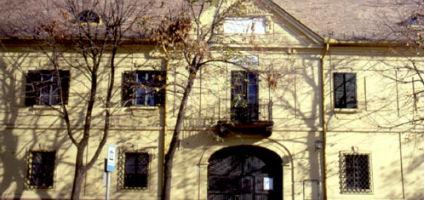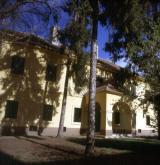2024. November 22. Friday
Kiskun Museum - Kiskunfélegyháza
 |
Address: 6100, Kiskunfélegyháza Dr. Holló Lajos út 9.
Phone number: (76) 461-468
E-mail: info@kiskunmuzeum.hu
Opening hours: 01.04-30.11: Tue-Fri 8:00-16:00, Sat 9-17
01.12-31.31.:Mon-Fri only on prior notice |
recommended age: 6 - 18 year
Ticket prices
|
Program ticket
|
500 HUF
|
/ capita
|
Museum pedagogy contact person
Equipment in the institute
Professionals:
Rooms:
Leisure equipment:
Traffic:
